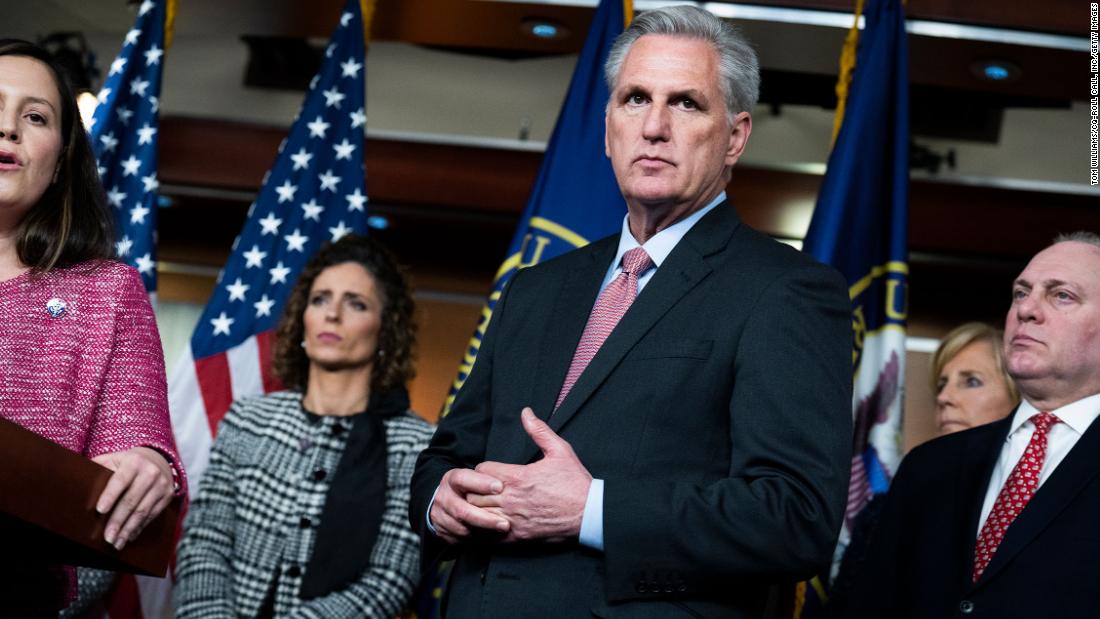That’s not merely because Donald Trump remains the dominant GOP figure. The former President lies incessantly, and his aberrant behavior compels fellow Republicans to lie about him.
The problem runs deeper than one man. For a minority party joining blue-collar voters driven by cultural resentment with affluent donors fixed on the bottom line, gaining and wielding power requires dissembling beyond the conventional equivocation that politicians in all parties have always used to amass popular support.
One of the GOP’s most successful political consultants of recent decades issued that judgment in a confessional 2020 memoir. Stuart Stevens titled his book: “It Was All a Lie.”
One clear policy example is tax cuts. Like other GOP candidates in 2016, Trump promised that his tax plan would benefit the middle class, not the rich.
“It’s going to cost me a fortune,” the billionaire candidate said.
That no-tax-cut-for-the-rich pledge was crafted so as not to alienate his working-class supporters. But it was false. As originally proposed and ultimately passed by Republican lawmakers, Trump’s plan provided the largest tax cuts for the wealthiest Americans.
Lately, Republicans have handled this problem by keeping their objectives quiet. They adopted no platform at their 2020 national convention. To avoid a forum where the party’s nominee would be pressed to speak honestly, the Republican National Committee recently abandoned cooperation with the nonpartisan Commission on Presidential Debates.
Sen. Rick Scott of Florida, the wealthy former health care executive heading the party campaign to recapture the Senate, recently suggested new taxes on Americans with modest incomes. Senate GOP leader Mitch McConnell disavowed the idea; asked about the party’s agenda if it regains control of the chamber, the Kentucky Republican said recently, “I’ll let you know when we take it back.”
Relying on extremists whose views and behavior repel mainstream voters requires more deception. So Rep. Paul Gosar of Arizona denies knowing the views of White nationalists he associates with; Rep. Marjorie Taylor Greene of Georgia testifies that she can’t remember making statements — such as accusing Speaker Nancy Pelosi of “treason” — that video cameras recorded her making.
Because he needs their backing, House GOP leader McCarthy shrinks from disciplining Greene and Gosar over their suggestions of violence against Democratic colleagues. He falsely indicated that Democrats had similarly suggested violence.
A Public Religion Research Institute poll earlier this year showed about one-fourth of Republicans are drawn to the bizarre fantasies of QAnon, a movement that contends Satan-worshipping pedophiles control the government and the media. Competing for their allegiance pushes Republican politicians past the point of credibility.
During Supreme Court confirmation hearings for Biden’s Supreme Court pick, Judge Ketanji Brown Jackson, Republican senators including Texas’ Ted Cruz concocted the charge that Jackson had handled child pornography cases with inordinate leniency. The conservative National Review dismissed the attack as “meritless to the point of demagoguery”; Cruz earned a rebuke from an eminent conservative federal judge for whom he once had clerked.
In the 2016 Republican presidential nomination fight, Cruz became the target of preposterous claims. After Trump suggested Cruz’s father was linked to the assassination of John F. Kennedy, the senator from Texas stopped feigning affection.
“I’m going to do something I haven’t done for the entire campaign,” Cruz declared. “I’m going to tell you what I really think about Donald Trump. … This man is a pathological liar.”
As President, Trump lived up to Cruz’s label. On his first full day in office, he sent press secretary Sean Spicer to make false claims about the size of his inaugural crowd. Trump lied about policy matters (claiming he had talked North Korea into denuclearization) and personal ones (insisting he knew nothing about payments to Stormy Daniels).
After federal prosecutors charged his political adviser Steve Bannon with fraudulently using a We Build the Wall fundraising effort to bilk supporters, Trump pardoned him. Trump’s last White House chief of staff was Mark Meadows, a former member of the right-wing fringe in the House; Brendan Buck, a former top aide to two GOP speakers,
called Meadows “a world-class liar.”The GOP’s existential challenge is holding power as demographic change erodes the clout of its overwhelmingly White voter base. Republicans lost the popular vote in seven of the last eight presidential elections.
With the 2020 big lie, Republicans use false claims of fraud to pretend Trump didn’t lose at all. After elections officials and courts rejected them, extremists staged the deadly January 6 insurrection.
From the start, Republicans dissembled to cope with the fallout by pointing toward radical leftists rather than Trump supporters. Fox anchor Laura Ingraham did so even while privately exhorting the White House to call off the insurrectionists. Former Trump Cabinet Secretary Rick Perry has denied sending a text message about election fraud that contained his digital signature.
In fact, House Republicans have made telling the truth about the election a disqualification. They fired Rep. Liz Cheney of Wyoming as conference chair and ostracized Rep. Adam Kinzinger of Illinois, the two Republican members participating in a House committee investigation of January 6.
That makes McCarthy’s lie about his private post-insurrection remarks, in which he told colleagues he planned to ask Trump to resign, unremarkable. Busted by audiotape after denying he’d said it, McCarthy lied about the lie. He insisted he’d been denying something else that he hadn’t been accused of.
McCarthy has long since reiterated public fealty to Trump. Fellow Republicans reacted as casually to the contretemps as the former President did.
Trump told the Wall Street Journal: “I think it’s all a big compliment, frankly.”
